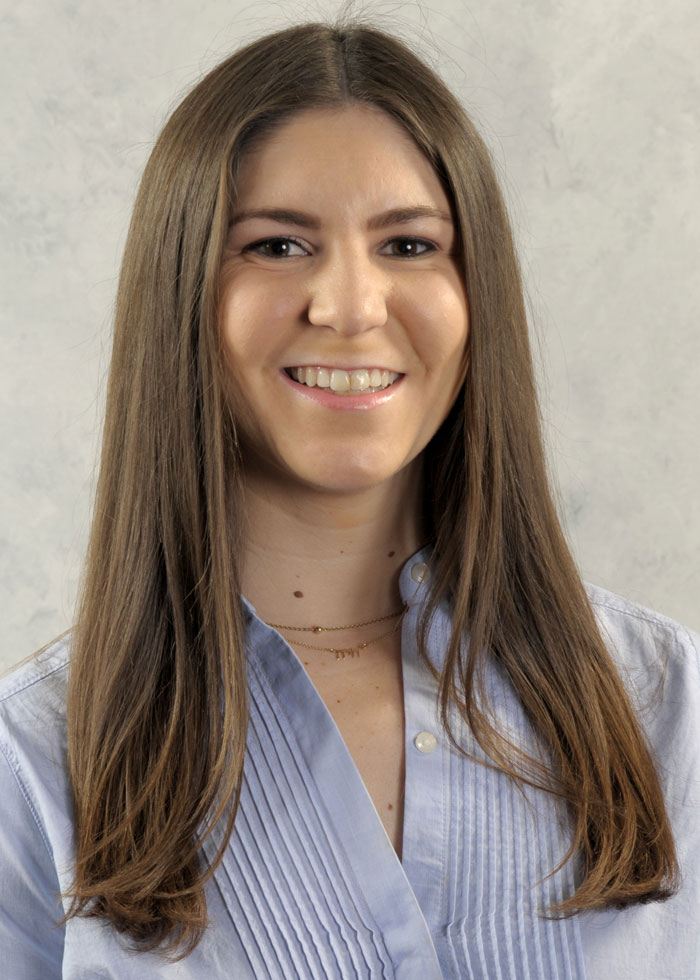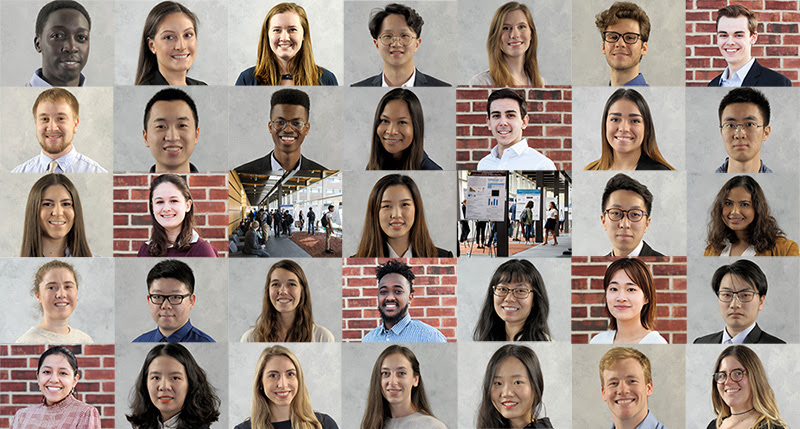
Student: Nicole Malofsky
Project: Developing Functionalized Bioresorbable Membranes Using Natural and Synthetic Polymer Blends | View Poster (PDF)
Institution: Lehigh University
Major: Bioengineering
Advisor: Lesley Chow
Abstract
Biodegradable polymers are integrated into 3D scaffolds to support cells and degrade as new tissue forms.1 The physical and biochemical properties of these materials must be tailored to mimic native tissue properties to promote functional regeneration. Our lab is developing new strategies to guide spatial tissue formation by combining functionalized polymers with advanced fabrication techniques.2 Our lab is creating tunable membrane scaffolds by blending synthetic and natural polymers such as poly(caprolactone) (PCL) and chitosan (CHI), respectively. The mechanical and chemical properties of these membranes can be modified by changing the PCL:CHI ratio, which specifically influences optical, mechanical, and degradation behavior. The resulting PCL/CHI membranes were imaged using DSLR camera, optical microscopy, and scanning electron microscopy while optical transparency was quantified using an absorbance microplate reader. Increasing CHI content improved optical transparency and increased membrane stability. In addition, we can functionalize the membrane with bioactive peptides, such as the canonical adhesion motif RGD, by incorporating peptide-PCL conjugates during membrane formation. This enables us to promote cell adhesion while maintaining desired physical properties. A biotinylated peptide-PCL conjugate was labeled with streptavidin-fluorescein isothiocyantate (FITC) to confirm presence of the peptide on the membrane surface. Membranes with and without the conjugate labeled with streptavidin-FITC showed that fluorescence was only detected in those containing the peptide-PCL conjugate. Future work involves mechanical testing and cell adhesion and viability studies. This work provides a platform for tuning multi-component tissue engineering constructs that more closely resemble the diverse mechanical and chemical properties of native donor tissues.
References:
- Lopes MS, Jardini AL, Filho RM. Procedia Engineering 42(1): 1402-1413, 2012.
- Chow LW, et al. Advanced Healthcare Materials 3(9): 1381-1386, 2014.
About Nicole Malofsky
Nicole Malofsky, is a Lehigh University senior studying Bioengineering with a concentration in Biomaterials and Biomechanics on the pre-med track. After graduating this upcoming May, Nicole will pursue a Masters in Healthcare Systems Engineering at Lehigh University. She has performed undergraduate research with Dr. Lesley Chow since Fall of 2016. Nicole’s work focuses on the design of novel biomaterials for tissue engineering and regenerative medicine applications. The Chow Lab is developing new strategies to guide spatial tissue formation by combining functionalized polymers with advanced fabrication techniques. Specifically, Nicole is developing functionalized bioresorbable membranes using natural and synthetic polymer blends. She was previously selected to present her research at venues such as the 2018 Northeast Bioengineering Conference and 2018 Lehigh University Expo. As a 2018 Iacocca International Internship recipient, Nicole worked as a Biotechnology Research Intern for a vascular access device company, Access for Life, in Haifa, Israel. She identified and developed opportunities for improvement in repetitive vascular access therapies targeting chronic disease patients. On top of her three years of bioengineering research, Nicole was selected to be a Senior Peer Mentor in the Technical Entrepreneurship Capstone Program, elected Kappa Delta President by her peers, became a Tour Guide and now serves as an Admissions Fellow, clearly demonstrating her leadership in the University Community.


